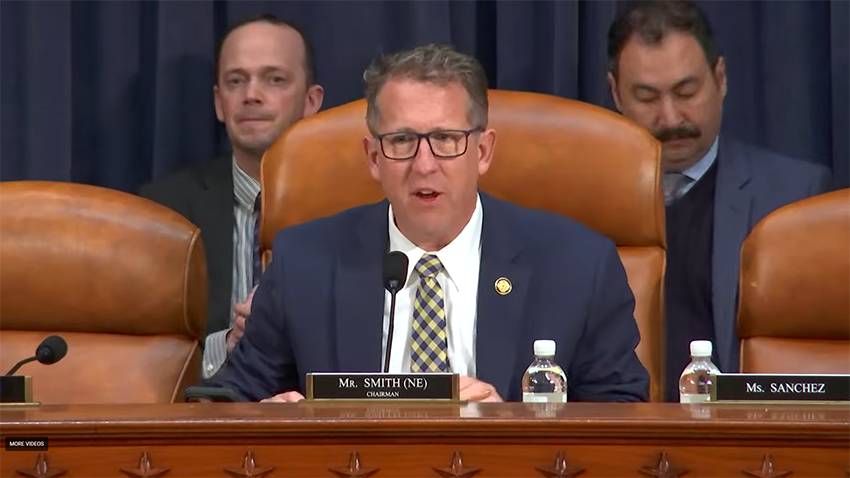Biotech’s contribution to America’s biodefense can only be supported through public-private partnerships, but the public sector must provide adequate support and private actors need to be ready to deliver sustainably, according to experts.
The 2025 BIO International Convention opened on June 16 with a series of panels on biodefense that included government officials seeking to encourage and assist industry members interested in entering partnerships. In other panels, experts discussed what more the government needs to do to enable partnering.
The Biotechnology Innovation Organization’s (BIO) role as a mediator between government and industry, which includes hosting the BIO International Convention, is essential to facilitating this cooperation, panelists said.
“It’s events like this quite honestly where we can have an open dialogue as to where the industry is at and what we see as the true threats and the and the true needs in terms of MCMs (medical countermeasures),” said Mark O’Neill, Chief of Staff of the Administration for Strategic Preparedness and Response (ASPR). “Engagement with private sector leaders to ensure our health security is critical.”
The importance of MCMs
O’Neill said the most urgent need is partnerships with innovative biotechs that produce medical countermeasures (MCMs) to strengthen the Strategic National Stockpile, a reserve of medicines that we need to address public threats like pandemics or bioterrorism.
He said the government is looking for companies that are truly able to meet this challenge. “I told my team: capacity, production, and sustainment—you’ve got to have all three. So that’s who we’re really looking to partner with now,” he said.
Other panelists agreed that companies providing biodefense solutions must be reliable suppliers and should ideally be able to commercialize new MCMs.
The ability to sustain production of essential drugs in an emergency also means handling production in the U.S.
“Critical medicines is one of our biggest vulnerabilities. India and China—if they close their doors, we would be in trouble,” said Arlene Joyner, Director of the Center for Industrial Base Management and Supply Chain (IBMSC) at ASPR. “We need to look at what we can do to build the sources of these critical medicines ourselves.”
The importance of a diversified supply chain
Another part of ensuring a strong supply is to support a diversified supply chain, in which more than one manufacturer can provide critical medicines, according to Joe Hamel, Senior Advisor at the Center for Industrial Base Management and Supply Chain (IBMSC).
In a panel focused on contractors who work with the Department of Defense (DoD), Vic Suarez, Founder of Blu Zone Bioscience & Supply Chain Solutions, explained how changing military threats mean fighting forces may not be based around one central command and must be able to operate with several small bases.
“So we’re thinking of creative ways to deliver medical countermeasures where we can make products, whether it’s small molecules or biologics, on demand on a ship or on an island that’s thousands of miles away from the homeland,” he said.
How the government can help
“We need your involvement. Connecting with you is so important,” Wayland Coker, Chief Supply Chain Strategist for IBMSC, told the audience of biotech industry members. “We didn’t get through this last pandemic by ourselves. We got through it as good as we did because of that partnership between the government and the private sector.
Panelists urged industry to speak with ASPR or to become involved in government partnerships through a host of other initiatives and programs.
The DoD panelists acknowledged the bureaucratic challenges of cooperation with the DoD, which can require extensive permissions at every step of the development process. But they also noted workarounds like Other Transaction Authority (OTA) arrangements that cut some red tape and enable cooperation with commercial organizations.
What industry needs from the government
Another panel highlighted the need for antivirals to address pathogens with very real possibilities for causing the next pandemic.
Of 13 families of viruses of major concern, there are two for which potential antivirals are in the pipeline. However, all others are unaddressed, warned John Pottage, Lead Scientific Consultant with INTREPID Alliance.
Addressing this situation requires congressional reinstatement of the Priority Review Voucher program, as well as supporting development of drugs that will not be sold in high volumes but should be at the ready when needed, said Bryan Shuy, a biotech executive with government experience.
Another lapsed program that Congress needs to reinstate is the Pandemic All Hazards Preparedness Act (PAHPA), according to many panelists.
Many of the real champions of biodefense are no longer in Congress. “We really have a lot of educating to do to build champions in Congress,” said East End Group’s Kelly Childress Lange.
We also need to support global collaborative efforts at ensuring biosecurity beyond America’s borders, because outbreaks abroad can turn into pandemics that impact everyone, according to a panel on using public-private partnerships for “Rapid Response Capabilities of Global Health and Biosecurity Countermeasures.”
In the last pandemic, “14.9 million lives were lost globally, trillions of U.S. dollars were slashed from the global economy. We need to be better prepared for the next one,” said Emma Wheatley, Director, Access and Private Partnerships at CEPI (Coalition for Epidemic Preparedness Innovations).




